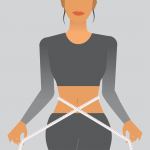Improving Our Mental and Spiritual Health
You should take care of yourself and take care of yourself. You should love yourself, not hate yourself. You should take care of your body health.
eat healthy, sleep well, exercise and enjoy life
You have to feel valuable for being yourself. You don’t have to prove that you exist, you already exist.
You have to judge yourself in rational ways. You should not set impossible goals for yourself, such as ‘I must be perfect in everything I do’ and punish yourself when you do not achieve them.
What is meant by good mental and emotional health?
Good mental and emotional health is what you do, rather than what you have. To be mentally and spiritually healthy, you must value and accept yourself.
If you don’t value and accept yourself, you are always afraid that others will reject you. So that people don’t realize how unacceptable you are, you avoid them and so you are always afraid and alone. If you value yourself, you don’t think that people will reject you. You are not afraid of other people. You become an open person and have healthy relationships with other people. If you value yourself and accept yourself, you can be a relaxed person and enjoy life without guilt. When you face a crisis, you can recognize it and deal with it, no matter how difficult the situation is. The decisions we make depend on how we see ourselves.
People who see themselves as valuable and accept themselves can cope with life.
Why do some people get depressed and others don’t?
We lose our mental health when we do not care about ourselves and do not value ourselves. This usually stems from our childhood, when we thought we were bad and not worth loving (why did our parents treat us the way they did if we weren’t bad). This makes it difficult to overcome difficulties and disasters.
We all grow up with different ideas about what we are in life, how our lives have been and will be, and what the world is like. These thoughts depend on our experiences in life, and because any two people have different experiences, people perceive things differently. Our thoughts cannot be indicators of what is happening around us, they can only be indicators of what we think is happening around us, or theories. If we grow up thinking that the world is as we assume it to be, when we grow up and discover that the world is different from what we thought it was, we are disappointed and realize that we have made a huge error in judgment.
It is when we face an unexpected catastrophe that we realize the mistake we made about what we thought our life was and what it really is. Maybe, like many Americans, we thought our lives were safe when a terrorist attack happened. Maybe we thought we were going to spend the rest of our lives with one special person and that person left us or passed away. Maybe we thought that if we were always a good person nothing bad would happen to us and something bad happened.
Every time we make a mistake in judgment, we start doubting everything we do, all the decisions we make. Then we start feeling unsure of ourselves. We feel that we can’t hold on, that we are falling apart, that we are going to disappear. If we accept ourselves and value ourselves, we know that even though we are afraid of what is happening, it will pass and we will be able to deal with the problem and overcome it. If we don’t value ourselves and don’t think positively, we feel like a person who is close to destruction. We feel that we are as insignificant as a drop of water in the ocean and that we are going to perish.
When we feel that we are going to perish, we need a defense to give us strength and keep us together. The worse we feel about ourselves, the more desperate our defenses will be.
These defenses can include hurting ourselves physically or starving ourselves.
blaming ourselves for the disaster that happened and thus becoming depressed
finding the cause of our fears in our environment and being afraid to step out of it
to go out into the world and create jobs for ourselves
making everything safer by over-cleaning or controlling
shutting ourselves in our own inner world and not perceiving the outside world as other people do. We do not consciously choose these defense mechanisms. We unconsciously choose a defense mechanism that fits how we see ourselves and the world. For example, if you are someone who tends to blame yourself for everything that goes wrong, you will blame yourself for whatever disaster befalls you.
Will I inevitably lose my sanity?
Losing mental health is not a necessity. However, if we don’t care and value ourselves, we can guarantee that our mental health will be affected when we face life’s challenges. If we are at peace with ourselves and feel positive about ourselves, we will not be depressed by the losses we face, only sad. And when someone treats us badly, instead of feeling guilty for being angry, we just get angry. In the face of any threat, instead of feeling that it’s beyond us, we just get scared because we know we can protect ourselves and take care of ourselves.
What affects our mental health is not loss, not lack of money, not sickness, not people treating us badly. What affects our mental health is how we interpret this loss, or lack of money, or illness, or people treating us badly.
Many people’s defense mechanism is to interpret things in a way that affects them the least. If we see ourselves as bad and unacceptable, and if we think we live in a just world where good is rewarded and bad is punished, then when disaster strikes we interpret it as a punishment for our weaknesses. If we think of ourselves as insignificant and unworthy, when faced with the possibility of being happy, we say to ourselves, ‘I don’t deserve to be happy’. If we are afraid of others, we think we have no right to defend ourselves when they treat us badly. If we don’t feel worthy of love when we need people around us all the time, we keep our anger inside ourselves. We allow others to oppress us because we don’t show our discontent because others won’t accept us. If we think that others will let us down and things will get worse, we don’t make any effort to improve our lives. And we suffer.
Some people blame bad things that happen to them on their genes or the stars, because then they don’t have to take responsibility for what happens to them. Many doctors attribute the suffering of their mentally ill patients to some unknown gene or biochemical change. This is because such doctors are more prone to medical rather than psychological interpretations. However, despite huge amounts of money, time and effort, no link has been found between the genes or biochemical changes that cause mental health.
Serotonin levels
People with depression have been observed to have altered levels of serotonin in their brains. However, the event that causes a disease must occur before the disease occurs, and no biochemical changes have been observed before depression. It would not be correct to say that depression is caused by a biochemical imbalance in the brain. If a certain drug makes a person feel better, it does not mean that the person’s restlessness is due to the absence of that drug. If aspirin relieves a headache, it does not mean that the headache is due to the absence of aspirin.
Genetics
It is often said that research indicates that depression is inherited. But examining this shows that this area is still open to questions. We inherit many traits from our parents, but much of this is learned. We can learn from our parents to think in ways that cause anxiety. If the mother is stressed and pessimistic most of the time, her child will grow up thinking that the world is a terrible place, and so the child will be stressed and pessimistic.
If I am sensitive about mental and emotional health, what can be done?
Accept that you can change. Nobody stays the same, and of course you can change for the better. The most important change you need to make is to care and value yourself. If you have spent most of your life thinking that you are worthless and unimportant, it will be difficult to change because all your values and thoughts are based on this assumption.
The remedy is to say to yourself, ‘I don’t think I’m very important, but from now on I’m going to be my own best friend, I’m going to be nice to myself, I’m going to take care of myself and I’m going to stop putting myself down and criticizing myself. Pretending to be your own best friend will eventually make you your own best friend. You have to be conscious of how you are talking to yourself. Listen to your inner voice. Write down the bad things, the criticisms that your inner voice is telling you, and then say more positive, better, more encouraging things that you can say to yourself. For example, when you are doing what you need to do, always say to yourself, “I’m sure you can’t do it. I’m sure you’re not going to succeed. You’re going to mess this up, like everything else you do,’ write that down and then say, ‘You’re going to do the best you can. You don’t have to be perfect, because mistakes are for learning’. Then repeat it to yourself and say other encouraging things.
Question your assumptions on which you base your thinking. Does everyone in the world really hate you, or has everything you have ever done really gone wrong? Was every bad thing that happened to you really a punishment for being a bad person? Try to understand the impact of your thoughts. If you don’t approach people out of fear of rejection, won’t you end up alone?
Try to understand why you think so badly of yourself. Was it something your parents told you? Were you really bad, or did they project their bad feelings onto you? Are you afraid to think that your parents are not perfect? No parent is perfect.
Writing down these feelings will help you to express them and see them better. Read not only self-help books, but also well-written novels, poetry and biographies.
Talk about the topic
Talk to others about these issues and try to understand how they see things. Talk to friends, go to a charity or self-help group near you. It can also be good to talk to a therapist or psychological counselor. There are many different therapies, but they all fall into one of two groups. Descriptive and narrative therapies. Descriptive therapies, like cognitive therapy, teach skills to deal with specific problems. Expressive therapies, like psychotherapy, try to understand your thoughts and experiences. Many therapists use a mixture of the two therapies. Finding a therapist or psychological counselor can be difficult. Ask your GP if there is a psychological counselor at the health center or if they can refer you to an NHS psychologist or psychotherapist. Find out what your local Mind Association has to offer. You can get a list of psychotherapists and counselors in your area from your local library. Just because a psychotherapist or counselor’s name is on the list does not necessarily mean that they are an effective psychotherapist or counselor. However, it does mean that if something goes wrong, you can file a complaint with the institution to which the person belongs. No psychotherapist or counselor can heal you with a magic hand, but they can help you to discover yourself.
What can I do about the things I cannot change?
Remember that it is not the event that causes us stress, but how we interpret it. If your mother always belittles you and hurts you, and you think that visiting your mother every week is an unavoidable rule, you are guaranteed to suffer. If you know that seeing your mother is not an obligation, that you are responsible for yourself, you will set limits on how often and for how long you see your mother. You will create an emotional distance between yourself and your mother, and you will see her less as your mother and more as a foolish woman projecting her own bad feelings onto others for instant gratification, instead of gaining a son who loves her and wants to be with her in the long run.
We often continue to see our parents who hurt us because we don’t give up hope that one day they will become the loving and appreciative parents we wish them to be. Some parents are wise, but they don’t know how to show it. To find out, you can ask them about your childhood. This is not meant to blame them, it will just help you to see some of the problems in your own mind in the right way. Some parents welcome this opportunity. And they say, ‘Yes, such bad things happened, I am really sorry’. But the unwise parents say, ‘How dare you insinuate that I am not perfect’. If your parents are saying that to you, then you may have to give up hope of a loving appreciative parent. This is a sad event, but don’t let this sad event and disappointment rule your life. Try to find an interpretation of what happened that will not make you unhappy. This is the attitude you should have towards events in your life that you cannot change. Don’t let these bad events take all your energy and time and rule your life. Even in the most difficult moments of your life, don’t forget to give yourself something good. It can be buying yourself something nice, just relaxing, talking to a friend, being alone with nature or even listening to music. Even if no one is taking care of you, you can take care of yourself.
= = The contents of this page are for informational purposes only. Please consult your doctor for diagnosis and treatment.= =









